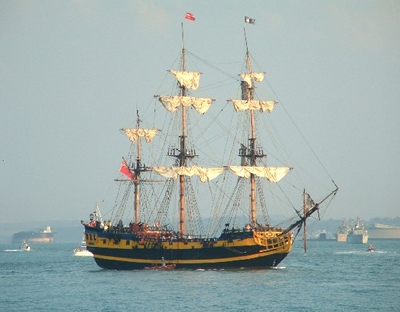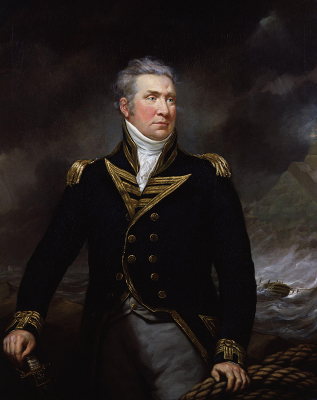CLICK ON THE SNOWFLAKE TO OPEN THE DOOR!
HAPPY HOLIDAYS FROM ALEX BROUGHTON & ANTEROS
An Age of Sail Christmas
“Fancy doing an Advent post for Speak Its Name?” Charlie Cochrane asked. “Something seasonal, how they celebrated Christmas on an Age of Sail ship perhaps?” Charlie suggested.
“Be happy to,” Alex Broughton replied.
“No problem,” said I.
And off we went to look up references to Christmas in our well thumbed naval reference sources. NAM Rodger’s The Wooden World? Nothing. King and Hatendorf’s Every Man Will Do His Duty? Nowt. Melville’s White-jacket? Not a sausage. The Naval Chronicle? The Gentleman’s Magazine? Nada.
Bugger.
Eventually we did manage to unearth a few paltry references to Christmas aboard a man of war in the 18th / 19th century in Commander Charles N. Robinson’s fabulous 1909 tome The British Tar in Fact and Fiction.
This from the Journal of Rear-Admiral Bartholomew James, 1752-1828
In 1776, he arrived at New York and secured the prizes he had brought alongside the wharf, where others were already tied up, and here, commenced the most agreeable time he ever experienced during his “servitude” as a midshipman, for he had almost every luxury of life, without an anxious care or an unhappy moment; he and his messmates were free from the snubs they had been accustomed to.
“Among the innumerable good things I was in possession of there was on board one of the prizes three cases of the best Bordeaux claret, which Captain Hudson had directed to be sent to him and Captain Chinnery, of the Daphn. We were keeping as usual Christmas Day, and were desirous to drink good wine; we therefore drank the three cases out, and the following day filled them with claret of a very inferior sort out of the casks, corking them with the same long corks, and sealing them all over with a deal of attention and care; which answered every purpose, as the captains, on drinking the wine, observed, it might be very good claret, but for their parts they found very little difference in that and the cask claret.”
Claret seems to be a bit of a theme, in A Claret Cup — Further Reminiscences and Sketches of Percival Plug, R.N. James Hannay, describes the boatswain as follows:
On Sundays he appears in a huge white waistcoat, and on Christmas days is generally invited to dinner by the captain, when he feels terribly awkward, and does not know what to do when asked to take wine. ‘No, thank ye, Sir, I’ll take a potato,’ is, we believe, the traditional orthodox reply, as laid down in the boatswain’s code of etiquette for these occasions.
Claret also makes an appearance in Rattlin the Reefer as Edward Howard and Captain Marryat tell the tale of Captain Reud’s questionable attempts to enforce sobriety among his crew on Christmas day.
Whether a man be mad or not, Christmas will come round again. Now, Jack, from time immemorial, thinks that he has a right undeniable to get drunk on that auspicious day. In harbour, that right is not discussed by his officers, but is usually exercised sub silentio under their eyes, with everything but silence on the part of the exercisers. Even at sea, without the ship be in sight of the enemy, or it blows hard enough to blow the ship’s coppers overboard, our friends think it hard, very hard, to have their cups scored next morning upon their back; and, indeed, to keep all a frigate’s crew from intoxication on a Christmas-day would be something like undertaking the labour of Sisyphus, for, as fast as one man could be frightened or flogged into sobriety, another would become glorious.
Captain Reud does have some success in his Sisyphean task, as the only man to become “glorious” on Christmas day is his own good self.
To understand a disease thoroughly, a physician will tell you that you will be much assisted by the having suffered from it yourself. Upon this self-evident principle, our Aesculapius with the epaulettes was the first man drunk in the ship. After dinner that day, he had heightened his testing powers with an unusual, even to him, share of claret.
The primary conclusion we can draw for this “in depth” literature review is that Christmas celebrations aboard a man of war seem to have consisted mainly of getting “glorious” on claret.
Undaunted, we decided to investigate further and Alex took herself off to the National Archives at Kew to consult the log book of our frigate of choice, HMS Indefatigable, known and loved by Hornblower fans the world over as The Bloody Indy, Captain Sir Edward Pellew.
The captain’s log entry for the 25th December 1796 reads as follows:
Sunday 25th Winds ESE to SSE Courses , S 33 W, Distance 82 Alt 45 30 N ,Long 9 32 W Cape Ortegal SE 43 leagues.
Remarks: pm made sail in chace of a strange sail …spoke to an English brig from Lisbon to London at 10 hove to under storm stay sail. At 9 [illegible] the main sail and main top sail, At noon ditto. Amazon and lugger in company.
The following year, 1797, was even more exciting!
Monday 25th Winds NW then SW, still moored in St Marys Road.
Mist in middle ditto at 10 At 2pm hove to for a pilot Am fresh gales bore up for Scilly at 10 moored ship in St Mary’s Road.
So there you have it. Christmas aboard a genuine Age of Sail frigate. Exciting eh?
However experience has shown that the most unprepossessing log entry can reveal the most astonishing events. Witness Captain Pellew’s entry for the 26th of January, 1796.
Sent two boats to the assistance of a ship on shore in the Sound.
The reality that this laconic entry conceals involves Captain Pellew leaping out of a carriage in full dress uniform running down to the beach and getting himself out to a stricken East Indiaman, the Dutton, by means of a rope. He drew his sword to keep order among the panicking, drunken soldiers on board and proceeded to organise the rescue of all 600 men, women and children, with the assistance of the Dutton‘s crew and the men of the Indefatigable in the aforementioned two boats. With the combination of commanding presence and calm confidence that he was able to project in even the most desperate circumstances, Pellew prevented panic and the inevitable fatal consequences and not a single life was lost. At the end of a celebrated and illustrious naval career Pellew still held his crowning achievement to have been persuading one of the Dutton‘s female passengers to entrust her baby to him and to have been able to restore the child to its mother once both were safe ashore.
It certainly proved to be a more eventful evening than the dinner party with the rector that Captain Pellew and his wife Susan had been scheduled to attend that evening. Alas history does not recall what Susan Pellew made of being abandoned in the carriage as her husband ran off down the road in his best dress uniform.
So often the historical and archival record provides us with the barest, most tantalising glimpse of extraordinary lives and events. In a rare moment of speculations in his scrupulously historical book Boys at Sea Burg notes:
Little is known of what transpired among commissioned officers when not engaged in shipboard duties. Certainly they talked much among themselves throughout the long years and months afloat…Of their conversation…virtually nothing survives. Their idle chatter over meals or casual talk on the quarterdeck when their ships glided smoothly over calm seas or were safely at their moorings is entirely lost.
It does rather make one wonder what really happened on the Indefatigable on Christmas day 1796….
For a glimpse of how Christmas might have been celebrated on HMS Indefatigable in1796 we invite readers to visit Anteros and Alex Broughton’s blogs for What the log doesn’t tell the Admiralty cannot censure.
Alex Broughton http://nodbear.livejournal.com
Anteros http://anteros-lmc.livejournal.com
References
ADM36 /13144 Indefatigable musters January – February 1797.
Burg, B. R., (2007), Boys at Sea: Sodomy, Indecency, and Courts Martial in Nelson’s Navy, Palgrave Macmillan.
Clarke, J.S., Jones, S. and Jones, J., (1799), The Naval Chronicle, Vol 1, J. Gold.
Hannay, J., (1848), A Claret Cup — Further Reminiscences and Sketches of Percival Plug, J. & D.A. Darling.
Hay, M.D., (ed), (1959), Landsman Hay the memoirs of Robert Hay 1789 -1845, Rupert Hart Davies.
Howard, E. and Marryat, F. (ed), (1836), Rattlin the Reefer, Carey, Lee and Blanchford.
James, B., Laughton, J.K.(ed) and Sulivan, J.Y.F (ed) (1896) Journal of Rear-Admiral Bartholomew James, 1752-1828, Naval Records Society.
King, D. and Hattendorf, J., (2002) Every man will do his duty: an anthology of first-hand accounts from the age of Nelson, 1793-1815, Conway Maritime Press.
Melville, H., (1850), White-jacket; or the World in a Man-of-War, Richard Bentley, London.
Osler, E., (1835), The Life of Admiral Lord Exmouth, Smith, Elder and Co., London.
Robinson, C. N., (1909), The British Tar in Fact and Fiction: the poetry, pathos, and humour of the sailor’s life, Harper.
Rodger, N. A. M., (1986), The wooden world: an anatomy of the Georgian Navy. Naval Institute Press
Advent Calendar Giveaway!
Alex and Anteros will be donating £20 to the charity of one commenter’s choice – thank you both!
The BONUS BUMPER PRIZE QUESTION (don’t answer this – just save them up for Christmas Eve.)
22. Who has the postcode/zipcode HOH OHO?
Filed under: Advent Calendar, Age of Sail, Alex Broughton, Anteros |














I think I’ll have to say “No thank ye, I’ll take a potato” when offered a top[ up of bubbly at Christmas. My family can’t think me any madder than they already do.
Great post – good reference source.
Charlie
Fine, you have the spuds I’ll have the claret, even if it is just cask vintage! 😉
Waiting with joy to see what the cochranites make of your potato reply
eyes heavenwards and oh- no – its – another – mad – age- o f- sail phrase ?
Thanks for sharing the fruits of your research and grand idea on the charity donation!
You’re very welcome! Start thinking of a charity right away, you might be our lucky winner 🙂
thank you – as Anteros says keep a charity in mind – as you may be the one !
Boggled by the potato tradition! Lovely research there again.
thank you – we really enjoy the research part – were there only endless time !
Super stuff!
Pellew sounds as if he’s doer, not a talker, but what a tale!
He could be both – though the art of diplomatic talking came later in life and was always subordinate to action !
but doer is spot on – he said of himself that he
” never had a second thought worth sixpence”-
Fascinating what you came up with but even more fascinating is to imagine what those lost conversations must have sounded like…..and I’ll take a potato and some claret!
You want the potato and the claret?! That’s just being greedy! 😉
It is fascinating to imagine these men’s conversations isn’t it? If you read part two over at our journals you’ll catch a glimpse of those lost conversations….
Hi I think we are both here at the moment !
As we were sayign when we wrote this and the fiction sequel that quoted comment on the lost conversations is such a rich vein of thought
Imagining Pellew holding the baby up out of the water, and carrying safe to shore…
As we indicated – he never forgot that event – and was convinced he never did a harder thing in his life.He was as far as one can see very fond of kids.An absent father of necessity but a very proud and doting family man when he got the chance – always enquring after friend’s “cubs” – his preferred term -as well as writing somewhat proudly about his own.
Thanks for sharing what you found out with all your research. It really is interesting to wonder what the actual conversations were like in the past. It’s interesting to speculate what future generations will speculate about the conversations we hold today that are not recorded….
Thank you very much
yes what will they wonder ?and may have a harder time of it in some ways – one slip of a delete button and much disappears – i am a fan of the kind of meticulous record keeping that the navy did then although goodness know it would be difficult to repeat now !
The anecdote of Pellew’s heroics actually made me laugh out loud with its awesomeness. “And afterward, he went home to pose for a superhero comic artist. Huzzah!” Wonderful post! *g*
Captain Sir Edward Pellew was indeed awesome and awe inspiring. You really can’t make this stuff up!
Now that is an idea – actually his family thought most of his portraits made him look too much like a statesman and not nearly enough the man if action so you do have a point !
Pellew’s sturdy commonsense, courage, & strength of character make him an attractive hero of his times. I guess the Royal Navy had many such Pellews in its ranks? But I think I’d opt for the rum not the claret, Alex & Anteros; I suspect the claret would have been a dicy vintage of its era.
There was no one quite like Edward Pellew but there were a whole group of brave and talented men in subtly differng ways in thta era – and all of them sadly eclipsed by Nelson’s huge shodow after Trafalgar.
The claret if Pellew served it ,would have been first rate at least such was his reputation – he had ways of -coming by these things.;It does seem likely that not every cargo of every prize vessel they encountered was always sent back for sale in England…
seems fair enough that thd odd case or two or something occasionlly was used to celebrate!
This is a fascinating era.. and I really appreciated this bit of research and explanation. merry Christmas and ahoy!